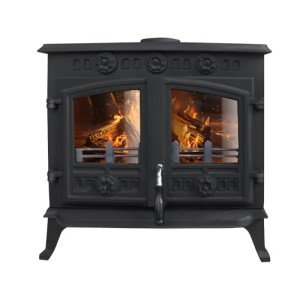20 Quotes That Will Help You Understand Multi Burner
The Multi-Burner: Revolutionizing Cooking for Modern Kitchens
Over the last few years, the cooking home appliance market has gone through significant changes to accommodate the growing requirements and choices of consumers. Among Multi Fuel Burning Stoves in this domain is the multi-burner, a flexible cooking device that enables users to prepare numerous dishes all at once. This short article explores the benefits, functions, and crucial considerations when choosing a multi-burner for your kitchen, together with answers to often asked concerns.
What is a Multi-Burner?
A multi-burner normally refers to a cooking home appliance featuring numerous burners that can run concurrently. These devices can be either gas or electrical and are designed to deal with the requirements of different cooking styles. Multi-burners are frequently used in both property kitchens and expert settings, making them a popular choice among chefs and home cooks alike.
Kinds of Multi-Burners
When it comes to multi-burners, several styles and configurations are offered for purchase. Here's a breakdown of the most common types:
Type
Description
Gas Burner
Uses gas as a fuel source, provides instantaneous heat control
Electric Burner
Powered by electrical energy, offers even heating
Induction Burner
Uses electro-magnetic energy, warms cookware directly
Portable Multi-Burners
Compact designs for outside or limited-space usage
Advantages of Multi-Burners
Multi-burners offer many benefits for both everyday cooking and special occasions. Here are some of the key benefits:
- Time Efficiency: With multiple burners, numerous meals can be prepared all at once, minimizing meal preparation time.
- Flexibility: Different burners can be set to various heat levels, enabling different cooking techniques like boiling, simmering, frying, and sautéing.
- Area Saving: Instead of numerous individual devices, a multi-burner consolidates functionality into a single system, making it particularly helpful in smaller kitchen areas.
- Consistent Results: Many modern multi-burners come equipped with features that make sure even heating up, leading to more constant cooking outcomes.
Selecting the Right Multi-Burner
When venturing to acquire a multi-burner, a number of elements should be taken into consideration to ensure that you pick the best system for your requirements:
Kitchen Space
- Ensure that you have adequate counter area and ventilation, particularly for gas designs that need proper exhaust.
Fuel Type
- Choose in between gas, electrical, or induction models based on your cooking choices and existing kitchen area setup.
Number of Burners
- Think about how numerous burners will be essential for your cooking design. Common configurations consist of 4 to six burners, although larger designs exist.
Power Output
- Look for burners with differing BTU (British Thermal Unit) outputs, which offer greater control over the heat level.
Safety Features
- Consider multi-burners with integrated safety features such as automobile shut-off, flame failure devices, and child security locks.
Care and Maintenance of Multi-Burners
To guarantee the durability and efficiency of your multi-burner, regular care and upkeep are important. Here's a brief checklist:
- Daily Cleaning: Wipe down burners after each usage to remove spills or residue.
- Weekly Maintenance: Check for gas leakages in burner and make sure that pies and grates are devoid of grease buildup.
- Yearly Inspections: Have a skilled service technician examine and service your multi-burner for optimum performance.
Frequently asked question Section
Q1: Can I use pots and pans made of any material on an induction multi-burner?
A1: No, induction multi-burners require ferrous (magnetic-based) pots and pans, such as cast iron or certain stainless-steels. Non-magnetic cookware will not deal with these burners.
Q2: How do I understand if a gas multi-burner is installed safely?A2: Gas connections should be performed by certified professionals. Visible leakages can be discovered utilizing a soap option, producing bubbles if there are any leakages present. Q3: Can I convert my electrical multi-burner to gas?A3: Converting
**electrical devices to gas is generally not uncomplicated due to considerable distinctions in facilities. It is encouraged to seek advice from with specialists for any conversion to guarantee safety and compliance with regional regulations. Q4: What size is ideal for a multi-burner in a small kitchen?A4: A four-burner model is normally sufficient for
**smaller kitchen areas; however, space-saving styles with compact burners can likewise
be a excellent choice. The multi-burner is more than just a cooking home appliance; it is a critical part of modern culinary experiences. By understanding the types
, benefits, and upkeep requirements of multi-burners, consumers can make educated decisions tailored to their specific cooking needs. As kitchen areas continue to progress and the speed of life quickens, welcoming the adaptability and efficiency of multi-burners can significantly boost the cooking experience, reducing the daily job of meal preparation while motivating culinary creativity.  ****
****